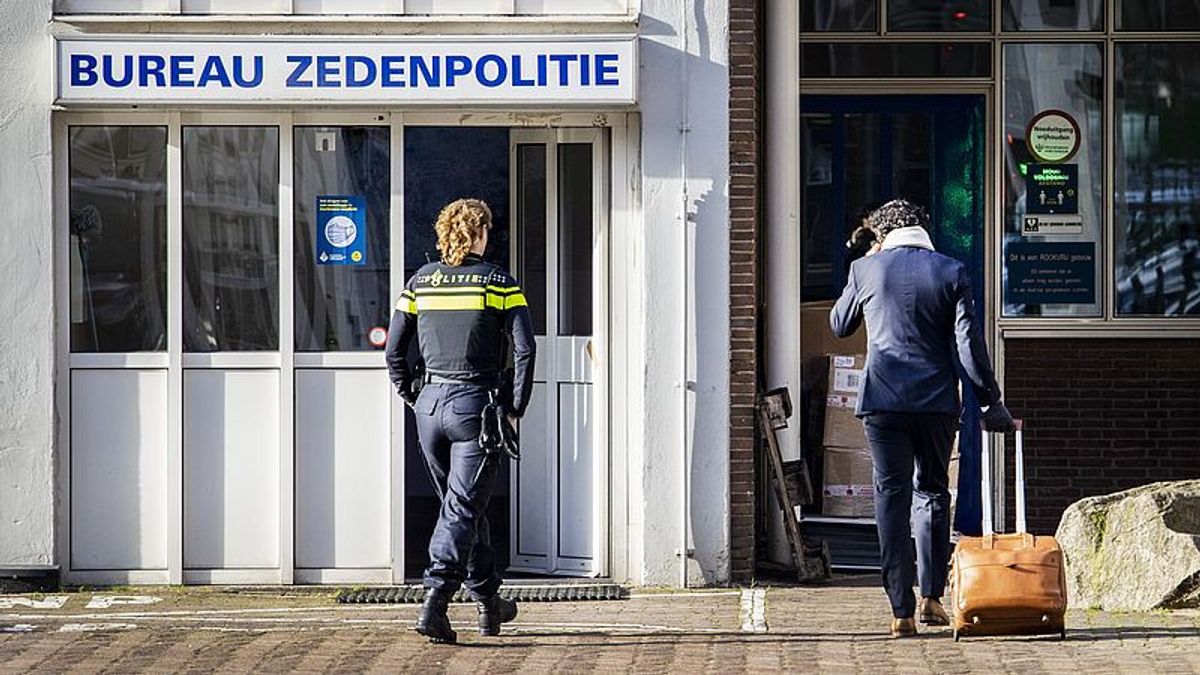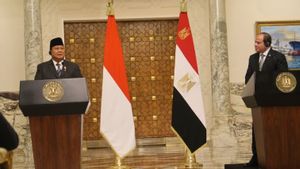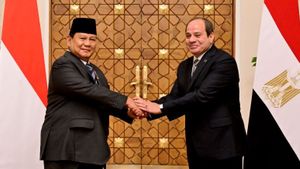JAKARTA - Moral and immoral diseases are often considered a big problem. Especially homosexual. This problem has even existed since the Dutch colonial period. The Dutch colonial government did not remain silent. Anyone caught perpetuating homosexuality will be severely punished. From dismissal to prison. However, recently the policy of eradicating zedenschandaal (the moral scandal) has become a political tool for politicians in the Dutch East Indies. Alias, accusations of homosexuality played to silence political opponents.
One of the things that can describe the Dutch colonialism in the archipelago is morality. The moral problems of officials in the colonies, from the form of the Dutch trading company, the VOC to the Dutch East Indies colonial government, were always considered important. The immoral affairs were initially managed by the church council, then developed into the task of the police.
The seriousness of the Dutch in regulating moral issues was increasingly visible in 1925. The Dutch ventured to form a zedenpolitie (police of morality) in the lands of the Indies. All this because the Dutch consider morality to be the main characteristic of modern society. Meanwhile, those who perpetuate immoral acts are considered to have violated security and order in the colony.

It may be that at first the issue of homosexual scandals was considered less important than the issue of prostitution, concubines, or adultery. Times have changed. Issues of homosexual scandals among government officials are rising all over the world. This problem has become the focus of government in many countries. Dutch East Indies, one of them.
Homosexual practices are alleged to have been present in the daily life of Dutch officials in the archipelago. Moreover, the practice is perpetuated by them by involving underage same-sex couples. The colonial government took a stand. Raids arrested homosexual perpetrators on a large scale carried out in 1938-1939. For the sake of tightening moral standards in the Dutch East Indies, he thought.
“In addition to using the term zedenschandaal (moral scandal), newspaper coverage in the Indies also used terms such as grote schoonmaak (massive cleansing), zedenschoonmaak (moral cleansing), and reinigingsproces (purification process), in their articles. It is recorded that the newspaper Bataviaasch Nieuwsblad during the period from 27 December 1938 to 15 May 1939 used the term Reinigingsproces 29 times for news headlines regarding police operations and prosecution of homosexual groups.
“The police raids during the period 1938-1939 targeted men who were considered to have sex with boys (under the age of 21). According to article 292 of the Dutch East Indies Wetboek van Strafrecht (Book of Criminal Code), pedophilia is a criminal act. The surprising thing is that in the previous period this action was allowed because the target was prostitution activities related to trafficking in adult women and children,” said historian Achmad Sunjayadi in the book (Not) Tabu in the Archipelago (2018).
Tactics Weaken Political OpponentsThe emergence of reports of deviant behavior among Dutch East Indies officials caused an uproar throughout the archipelago. Rumors of the involvement of Dutch officials in the life of homosexuals became their estuary. After all, the more the rumors were raised day by day.
The Dutch East Indies government did not remain silent. Massive homosexual raids were soon initiated in 1938-1039. The raids were carried out almost all over the country. From Batavia to Medan. The moral police also played a role. They conducted an investigation until the arrest of the accused homosexual.
The operation was able to arrest 223 people. However, those who were found guilty and sentenced and dismissed reached 171. The number was not all because they were proven guilty, but because of accusations of homosexuality that were deliberately released by other officials. The aim is none other than to silence political opponents.

Efforts to make accusations of homosexuality proved effective in repelling political opponents. In comparison, the power of accusations of homosexuality during the Dutch period is as vital as allegations of involvement in the activities of the Indonesian Communist Party (PKI) during the New Order (Orba) era.
Those who took advantage of the momentum to attack political opponents through accusations of homosexuality did not only come from Dutch officials. Bumiputra official Mohammad Hoesni (MH) Thamrin once tried it. On the pulpit of the Volksraad (similar to: DPR during the Dutch era), he revealed homosexual activities that were perpetuated by many Dutch officials. The spell was successful.
“Allegations of male same-sex deviant sexual practices reached their peak in late 1938, when there was an obsessive attempt to uncover the facts. The American anthropologist Margaret Mead called it a 'witch hunt' that actually arose from the practice of homosexuality in white colonial society.”
“On March 1, 1939, after the Dutch Government went insane for hurling accusations against a large number of prominent European men as perpetrators of homosexuality, among those arrested were distinguished and well-known people, such as Walter Spies, Roelof Goris, and Herman Noosten in Bali,” said Frances Gouda in the book Dutch Cultures Overseas: Colonial Practices in the Dutch East Indies 1900-1942 (2007).
The English, Chinese, Japanese, Arabic, and French versions are automatically generated by the AI. So there may still be inaccuracies in translating, please always see Indonesian as our main language. (system supported by DigitalSiber.id)













